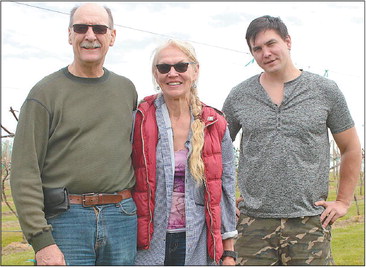RIETBROCK


VINEYARD
Wine grapes thrive on old dairy where alfalfa and corn used to grow
The wine I sipped was red and fullbodied. It was...


VINEYARD
Wine grapes thrive on old dairy where alfalfa and corn used to grow
The wine I sipped was red and fullbodied. It was...